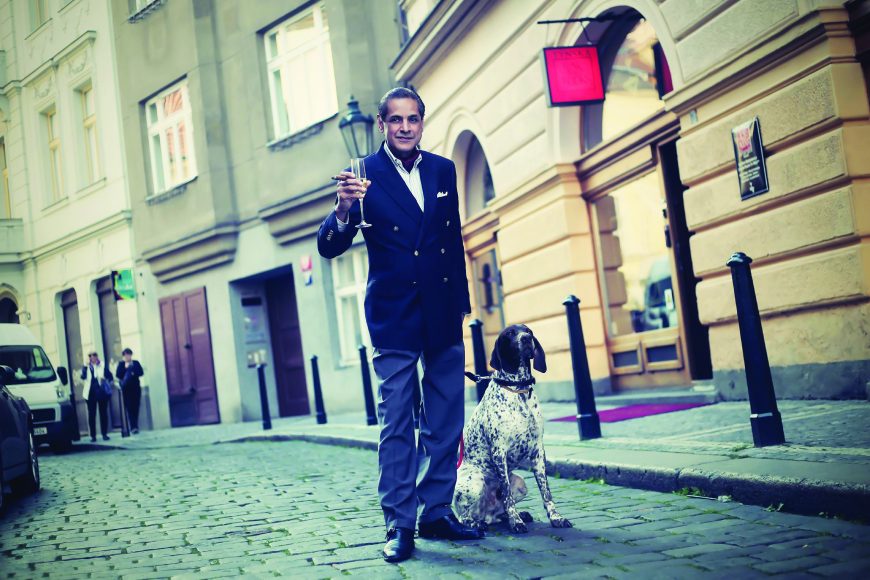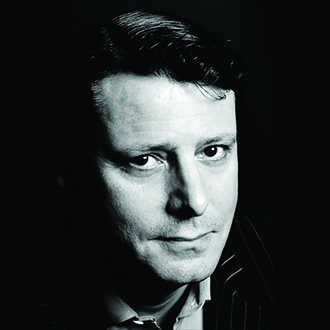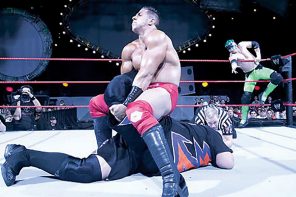Raju S. Mirchandani is the undisputed bar king of New York, but he’s a regent with so little self-conceit, you would be forgiven if you’d never heard of him.
Mirchandani’s new memoir, “On the Back of a Napkin,” tells the story of his middle-class Indian upbringing after World War II, where he started his apprenticeship young. Not yet 10 years old, the eager Raju would act as his father’s “butler.” This involved pouring him his habitual evening drink — “two fingers of Scotch and one ice cube, no more, no less,” as well as making a “surgically” light cut on his father’s Dunhill Panatela. This was an age before the surgeon general had declared anything at all, and the young Mirchandani seems to have reveled in his early buttling duties.
His parents, he reminisces, were of the 1920s generation, where 200 years of British rule and influence had left their triumphs and tragedies. “Such were the times,” he muses not altogether ruefully, “that one might go to sleep in India and wake up in Pakistan, as happened in August 1947.”
The turning point for Mirchandani came when, aged 17, he “first tasted adulthood.” This came in the form of his first batch of homemade brew. He started his first (paid) hospitality job in London, before following his sister to America.
It’s amusing to think that the ineffably suave Mirchandani still, on occasion, instinctively reaches for his employee ID whenever he hears a revolving door make its turn — a sound that takes him back to his first proper job, lobby boy at London’s famed Dorchester Hotel.
Landing in New York in 1979, Mirchandani took a job in the Polo Lounge at the Westbury Hotel, then in its heyday. After working with the Park Bistro Group (where Anthony Bourdain headed up the kitchens at Les Halles,) he branched out on his own in 1991, opening the first of his Bar & Books cocktail bars on the site of the former La Bamba, a one-time gay bar and strip club that had, according to Mirchandani, “clearly seen more than just the day the music died.” Beekman Bar & Books and Lexington Bar & Books followed, in 1993 and 1994 respectively and, three years later, Carnegie Bar & Books opened as a bar lounge and event space in the CitySpire high rise “out the back door of Carnegie Hall.”
Then, in 1999, came Le Bâteau Ivre, on East 51st Street, the restaurant’s name an homage to Arthur Rimbaud’s eponymous Symbolist poem, the restaurant’s look and style an unashamed carbon copy of a simple French brasserie. Twenty years on, “Le Bat” remains true to its origins. When Mirchandani treated me to lunch there earlier this summer, the decoration, the smell, the music and the textbook-perfect confit de canard instantly transported me to the Left Bank in Paris.
A business attachment that turned into a romantic one led to the opening of Bar & Books in Prague, Czech Republic, in 2004. Continuing his affair with Eastern Europe, Mirchandani opened Bar & Books in Warsaw, Poland, 11 years later. They are still going strong and Mirchandani visits both every month, flying economy, he told me merrily.
The year, 2013, saw the opening, on 92nd Street, of the first Indian craft cocktail bar, with indecently long hours and a late-serving kitchen (like Le Bat). A second location opened two years later in November 2015 on 25th Street & Second Avenue.
Part of the joy of this short, often rambling, memoir are its photographs — ephemera such as old menus, bar lists, a snapshot of a restaurant sign, perhaps, or local street scene — along, of course, with people. The sense of the age is palpable, from the glorious 1970s when every male seemed to sport a Tom Selleck moustache (with a nod to the Village People) to the present day (better suits, better hair.)
One thing that hasn’t changed through the years, however, is Mirchandani’s own uniform — the double-breasted blazer, French cuff shirt and madder silk ascot he habitually wears.
The memoir takes its name from Mirchandani’s habit of writing on the back of a cocktail napkin, which is where he says his best ideas have been planned out.
A natural raconteur with a great capacity for evoking the era he is speaking or writing about, he neatly fuses New York social history with insights into the hospitality industry.
Politically incorrect and all the better for it, the memoir also celebrates Mirchandani’s hero, James Bond, whose films run on a loop in all branches of Bar & Books to remind people “how the evils of the world can be righted with the proper cocktailing, tailoring and lovemaking.”
Unlike Bond, however, Mirchandani says his favorite cocktail is not a martini, shaken not stirred, but a Papa Doble, also known as the Hemingway Daquiri. And while I could share the precise recipe here, I’m afraid I would have to kill you if I did. A visit to Bar & Books, or indeed any other of Raju Mirchandani’s establishments, would be a far more sensible alternative.
“On the Back of a Napkin” is published privately by H. A. Press, with copies available at branches of Bar & Books. For more, visit barandbooks.cz.





